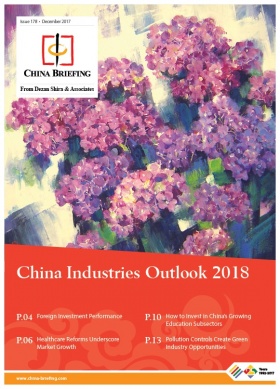No Lame Duck Second Term Presidents for China
There has been much hand wringing in the Western media concerning the decision by the Central Committee of the Chinese Communist Party to abolish the two-term limit for the President and Vice-President. However, like much in Chinese politics, it could easily have been predicted.
The four main issues that will have prompted the change are easily understood:
- A wariness of the US democratic Presidential electoral system, which has seen several presidencies turn into ‘lame ducks’ two years ahead of their actual expiry date, as everyone knows there will be a change;
- The example set by Russian President Vladimir Putin, who along with Vice-President Dmitri Medvedev, has remained in de facto power since 2000 and is expected to remain until 2024;
- The viewpoint that the current strategic course set upon by China is the best option at this stage of its development and requires consistency to implement;
- The relative young age of Xi Jinping compared to other world leaders.
| Country | President | Age Now | Potentially In Power Until |
|---|---|---|---|
| United States | Donald Trump | 71 | 2024 |
| India | Narendra Modi | 67 | – |
| Russia | Vladimir Putin | 65 | 2024 |
| China | Xi Jinping | 64 | – |
| Germany | Angela Merkel | 63 | – |
In fact, several other countries, including democratic nations such as India and Germany, have no limits on individuals holding their most senior political roles. India has no term limit for its prime minister, a position that is granted by the Indian president, typically following national elections. Normally this means the leader of the winning party. The same is also true of the German chancellor, who can also remain in power with no term limits. Angela Merkel has already been Chancellor for ten years; Helmut Kohl was chancellor for more than 16.
In short, the outcry over China changing its constitution doesn’t make it at odds with other nations, nor does it necessarily promote a so called “Cult of Personality”. Is Xi Jinping likely to use it? Yes, but not indefinitely. Other Chinese leaders are being fast tracked, with one to watch among many being Liu He,widely tipped to be the next head of the People’s Bank of China and a potential safety net as cover for Xi.
With HSBC saying that the Belt & Road is likely to add US$2.5 trillion to the investment spend, China is engaging globally over the next decade, and with that kind of money at stake, it appears a wise move by China – both financially and politically – to aim for the type of economic sustainability that arguably, Angela Merkel has bought Germany. No one appears to begrudge her the ten years she has been in power, while the criticisms of lame duck US presidents seem to ring true.
Another way to look at it is the possibly for global stability, an issue that along with Vladimir Putin, certainly Angela Merkel and quite possibly Narendra Modi will wish to see translate into greater, rather than less political and government policy sustainability. With the US media now contemplating the prospect of a second Trump term, this, if realized, will see the current US president finish his term aged nearly 80 in a country with an average median age of 38. By then, President Xi Jinping will be 71, the same age as Donald Trump is now. China’s median age by then will also be 38. But their President will be six years younger than the man responsible for the US, to some extent that of the global economy, and in possession of far more experience and global connections. Who is to argue against the presidential logic of that?
Its often noted that the Chinese wish to emulate the Americans. If so, allowing Xi Jinping a further few years of power is certainly going to achieve this objective in terms of political ageism. Time will tell how prescient that decision will be.
- Devonshire-Ellis: 2018 Prospects for Asia
- The Beijing Belt-Road Forum: What We Learned About China’s Intentions
Chris Devonshire-Ellis is the publisher of China Briefing and chairman of Dezan Shira & Associates. He has over 30 years of China business experience, including 25 living in-country, and is a Visiting Professor at the International Trade & Politics department at the Russian Higher School of Economics in St.Petersburg. The firm provides business intelligence, investment advisory, due diligence, tax advisory, corporate establishment and structuring, accounting, payroll and related professional services throughout China, India, ASEAN, Russia and the Eurasian region, servicing both Governments and Multinational clients. To contact us please email info@dezshira.com or visit us at www.dezshira.com
- Previous Article Piano integrativo della Greater Bay Area
- Next Article The 2018 Two Sessions Meetings: Economic Growth, Reform Targets Set for China























